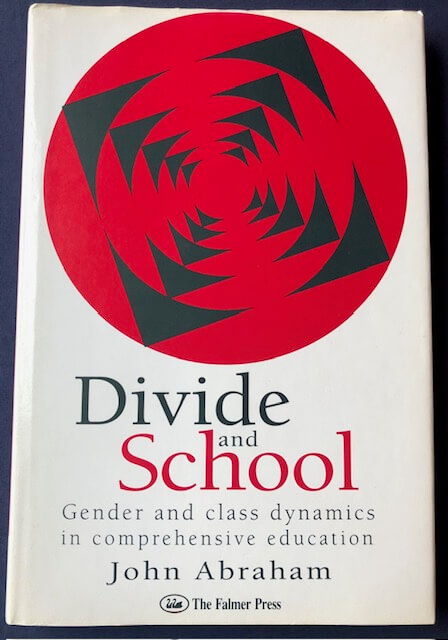
Divide and School: Gender and Class Dynamics in Comprehensive Education
Author: John Abraham Category: Factual Academic Publisher: Taylor & Francis More Details“This book is concerned with how comprehensive schooling can act as a social system of class and gender differentiation. John Abraham develops a theoretical and methodological framework for ethnographic research into the central gender and class dynamics of a comprehensive school. These include: the differential impact of streaming by sets on middle class and working class students; the gender dimensions of deviant students’ values systems; teachers’ ideologies; the construction of subject options; and sex roles in curriculum texts. He argues that the comprehensive school does not necessarily challenge dominant class and gender divisions in society, and can serve to reproduce them. To further the ideals of comprehensive education, Abraham proposes that streaming should be minimized; subject option processes should be interventionistly counter-hegemonic; breadth of gender identities amongst the student population needs to be better appreciated; teacher trainees should be allowed sufficient time to develop a good awareness of the gender and class division in society; and anti-sexist pedagogies should be systematically developed. He concludes, however, that recent government reforms are more likely to hinder than further these proposals”
“This is a timely and important work. John Abraham’s study of a comprehensive school revives a neglected tradition of school case studies which is needed more at the present time than at any other since the 1960s. …. The effects of streaming in all its forms as a source of educational inequality need to be kept in the collective memory in order to counter ill-considered policy shifts of this kind. Divide and School provides a valuable service in this respect. …. John Abraham makes an important contribution to this debate. …. The study has an up-to-minute relevance and impact. Abraham has captured social processes that have become more widespread and intense …. [and] …. debated his findings in the context of today’s educational environment. Abraham takes a refreshingly new approach to gender differentiation …. and demonstrates that analysis of gender and class can complement each other rather than competing for space and emphasis. …. Abraham contributes real insight into the situated complexities of selection that are increasingly coming to characterize the more finely differentiated postmodern world in which we live. …. Abraham’s book should be treated as a serious contribution to the sociology of school selection. …. much of value will be gained from it”.
British Journal of Sociology of Education